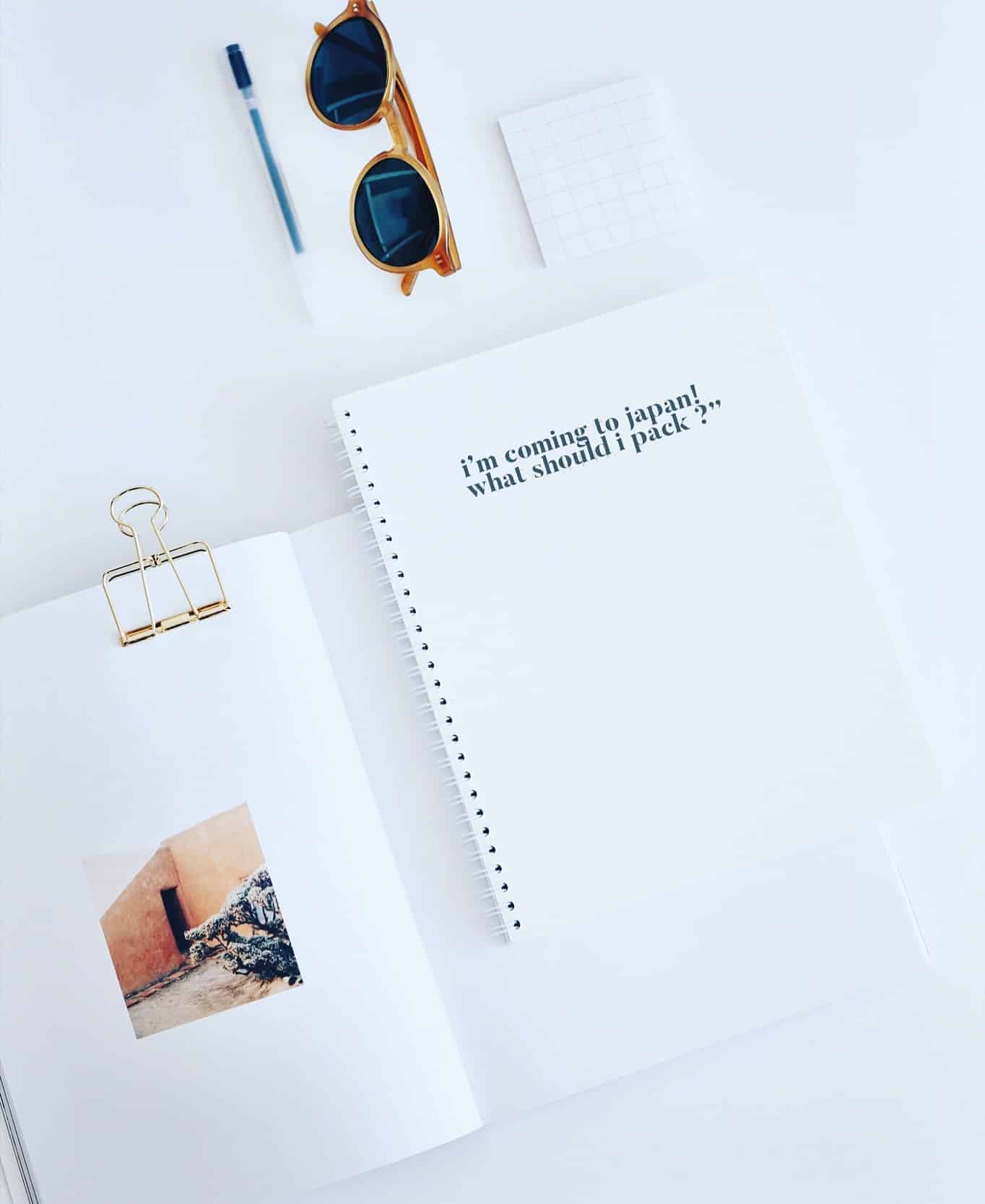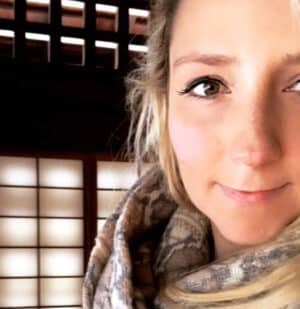
PREPARING FOR YOUR TIME IN JAPAN
Okay ….so here are my basic “beginner tips” when starting from scratch when preparing for your trip to Japan.
I also have a blog post on how to start planning a family holiday to Japan. (I RECOMMEND STARTING HERE.)
I have compiled a list of places and experiences to reserve before your Japan holiday here.
Here are also the dates when Japanese school aged children are on holidays.
Organising the actual Japan holiday
OK. Starting with the fundamentals – if you have the choice when coming to Tokyo, I highly recommend flying into Haneda Airport over Narita Airport. Only because Narita is about 1.5 hours from the centre of Tokyo whereas Haneda is more like 30 minutes. That can feel like big difference when you’re jet-lagged.
What is a JR Pass in Japan?
Look into a JR (Japan Rail) Pass. This is a discounted rail and bullet-train pass only available for tourists. When you first look at the price you may be shocked but it can save you a fortune if you’re planning to travel to other parts of Japan. It also includes travel on the local JR trains (not the subways and private lines). It will save you a lot of money if you plan on getting on and off bullet trains throughout your trip. Why not use google maps, Jorudan site or google “JR Pass calculator” to compare the outright costs for tickets compared to using a JR Pass?
Back in the days when we were tourists here, we would travel like crazy during our JR Pass selected period of time, and then do the local sightseeing on the other days (at the start of end of our trip.) Here is some more info on the JR Pass system.
* Note: JR Passes can ONLY be purchased outside of Japan. There will be some unique promotions coming up for also purchasing within Japan but I still do recommend purchasing prior to departure just so you’re 100% ready to go.
Extra TIP ! If you are getting a JR Pass ( more info here) please be aware that you dont HAVE to start it the moment you arrive at the airport. Everyone will be cranky and tired after the flight and then getting through immigration etc. Just wanted to put it out there and start your pass for the next day ?
Read here for how to reserve bullet train tickets with and without a JR Pass.
What are the Japan rechargeable travel card options?
There are a few different options including 24, 48 and 72 hour subway tickets too. I break it all down the best I can here.
Reservations and prepping in advance
I have compiled a list of places and experiences to reserve before your Japan holiday here.
It’s so so nerdy but start planning the things that you are most excited about. Your “must-sees.”
Why? Because Tokyo is a busy, busy city. People often take it as common knowledge that they won’t automatically get a seat at a popular restaurant in New York but forget that it’s the same deal for Tokyo. So why not send them an email and book ahead and be guarranteed an amazing night out? (Don’t book everything, of course, but just the restaurants and places that you have your heart absolutely set on). Here are some tips on how to book restaurants in Japan.
Are there concerts on in Tokyo that you want to attend?
Do you need to get your international driving licence sorted so that you can drive around Tokyo in a Mari0-Cart?
A sushi restaurant that you are dying to try?
Are you planning on visiting either the Pokemon or Kirby Cafes perhaps?
Are you thinking of Studio Ghibli? ( This needs to be booked WAY in advance, by the way)
Are you wanting to stay in a Disney Hotel? *Please note that Tokyo Disney Official Hotels can only be booked up to 2 months in advance*
Are you wanting to prebook shows and dining for Tokyo Disneyland & Disneysea? See how in my Disneyland post here – and for Disneysea? Here!)
Please note that it is NOT possible to buy tickets for Tokyo Disneyland or Disneysea at the gate. This is why their crowd prediction calendars are so accurate.
See here for where to buy Tokyo Disneyland tickets.
Are you thinking of visiting Universal Studios Osaka? If so, did you know that you need to pre-book your express passes -even if you just wanted to enter Super Nintendo World? (Warning: the introduction of express passes which need to be purchased prior to arrival in the park makes a trip to Universal Studios in Japan with kids a MUCH more expensive exercise than a trip to Tokyo Disney Resort.)
I highly recommend looking on the Tokyo Weekender and Tokyo Timeout website for upcoming events (and looking again for current events once you’re here.) You might find yourself knowing more about “what’s on” than the locals!
Prepare yourself and your family for potential mask-wearing Masks
Although masks are mostly off now in Japan, it’s good to have some in your bag for moments where you can’t social distance (or incase you just feel you’re in a germy spot.)
It’s also a good idea to have some incase YOU get sick while you are in Japan.
What to pack everything into (What kind of luggage is best for a trip to Japan) ?
I cannot recommend a suitcase with wheels enough.
It is how the locals travel domestically. It is what the bullet trains and other trains are made to accommodate.
Something like a big backpack is actually considered poor etiquette in a country with so many people. You will find restaurants much more open to making space for a suitcase over a backpack too.
So unless you’re hiking up Mt Fuji or in the mountains, a rolly suitcase will save your back, will make you more friends and will be generally more convenient.
Also, the Japanese courier system is amazing so if you’re shipping your luggage around the country to meet you at certain spots?
For a month by month description of what to pack – see my detailed article here.
Have you worked out how you will get from the airport to your accommodation in Japan?
Here are my favourite and my most cost-effective and comfortable options for getting from the airport to your accommodation.
Have you thought about hotels vs airbnb in Japan?
Airbnb laws have changed and there are less to choose from. However, there are still some treasures out there.
Here are a list of Airbnb’s that The Tokyo Chapter readers have tried out for themselves and loved.
Before you arrange an airbnb in Japan please make sure that the property has excellent recent reviews (including if the location is easy to find and keys easy to get your hands on) and preferably they should be a super host.
Also, because of the language issue; realize that if you are at Airbnb you will not have a concierge or checkin guest to assist you with restaurant bookings, cheaper local recommendations in the area and there wont be anyone to help you call a doctor if a member of your family/ travel group falls ill.
Please also note that, unlike a hotel, airbnbs will not be able to store luggage for you.
I have written a post on what to check before booking accommodation with Airbnb Japan here.
Guest blogger Carla Middleton recently stayed mostly at Airbnb in Japan ( Osaka, Hiroshima, Kyoto and Tokyo) and wrote in great detail about their fabulous trip here.
If you arrive early in the morning in Japan, have you thought about what you will do between arrival and check-in?
Japanese hotels/ airbnbs/ hostels are very conservative when it comes to early check-ins. You will almost always not be able to enter your room until 3 or 4pm ( see the hotel’s website for the exact time, of course.)
Have you thought about what you will do with those hours? You might be jet lagged? You will have lots of luggage so, even if you are feeling ok, you might not be able to sightsee right away…
Almost all hotels will store luggage for guests but not often will airbnbs. So you will need to do some coin locker research for your area ( start with the train stations first.)
Maybe you’d prefer to courier your luggage from the airport instead? ( Details on how to do that here)
I know it sounds radical but have you considered booking the night before your arrival too so you can check in whenever you like? If you’re travelling with small kids or you just don’t function well without a decent night’s sleep, this could be your best option.
Something else to keep in mind when travelling to Japan?
Museums, department stores and many tourist attractions don’t start their day until 11am so be sure to check ahead. Also, Mondays (in particular) are often the day of the week that smaller businesses or art exhibits close down for the day so be extra nerdy when planning your Mondays or the day that follows a national holiday. *
*Many kiddie-related events close a Tuesday or Wednesday instead so just double check before you go.
Planning for crowds in Japan and planning to avoid where possible
Are you travelling during a peak tourist period? Or even planning some major attractions on a weekend or national holiday? It WILL influence your day, your view, your photos. Not enough for me to say don’t come to Japan – because it’s still worth it … BUT.. why not be really clever about it?
For example, Japan, in general, is open late but also OPENS late. (I talk a lot about this and places that ARE open early here ) For this reason, I highly recommend doing the busiest thing at the very, very start of the day. You’ll be sooo pleasantly surprised and you WILL feel like you’ve found a little treasure.
That museum opens at 10am? Be there at 9:50AM!!! You WILL thank me later.
You want to go to Tokyo Disneyland? Use my tips on sussing out the crowd prediction calendar first?
And google around because many temples are open 24 hours a day! For eg. the best time to see Fushimi Inari Shrine (details here) is at sunrise – it can be a mad house during tourist season.
Have you checked when the national holidays are during your holiday period in Japan?
In Japan, it is most common for smaller shops and museums to be closed on a Monday and Tuesday. BUT THEN… if that day of closure falls on a national holiday, the day AFTER that will become the weekly “day off” instead. Check the websites of places or call ahead – just to prevent wasting time. In fact, if you’re staying at a hotel, in the morning before you head out… head down to the lobby 10 minutes early and ask the staff to double check that the places you plan on visiting are open. ESPECIALLY if you are travelling during Golden Week, Silver Week or around the New Year’s period ( Jan 1-7).
Have you slotted in the best days of the week to do certain activities in Japan?
Obviously, first thing in the morning on weekdays is always the best time to do the truly touristy activities ( if you DON’T want crowds! I do think that you SHOULD try and experience Shibuya Crossing and some of Harajuku at it’s most busy to get right in the thick of it – even if you just do a tiny bit and come back the next day for a more chilled take on the same spot. ).
Also, did you know that I talk about the benefits of visiting Harajuku on a Sunday as you will get to see the Rockabilly dancers in Yoyogi Park and catch a food festival in the park? Here are more Harajuku tips here with lots and lots of tips and tricks.
And, another example , did you know that the main road in Ginza is closed to traffic on weekends ? This means you can really get that “Lost in Translation” shot in the middle of the street!!! Here are all of my Ginza suggestions here (and there are LOTS) .
Also, did you know that there is a crowd prediction calendar for Disneyland and Disneysea that will tell you the days which will be the least busy? If Disney is on your to-do list, I advise starting with the selection of this particular day and trying to work the rest of the central Tokyo itinerary around it. I tell you exactly how to read the Disney crowd prediction calendars in this post here.
Have you also planned for your own dietary requirements in Japan?
If you are vegan or gluten free I highly recommend taking one of the Foodie Adventure Japan food tours. Not only do they show you their favourite spots but they also help you with supermarket and convenience store shopping – which will set you up for the rest of your time in Japan. I wrote more about their Foodie Adventure tours and what it’s like to be a tour participant here.
If you or one of your family members are Gluten-free then I recommend joining the Facebook group Gluten Free in Japan and I also recommend popping a bottle of gluten free soy sauce in your luggage as it’s not easily acquired in Japan.
Internet in Japan
Okay. So I have travelled extensively in Japan and have met many, many different types of tourists here. I really don’t care if you managed to climb Kilamanjaro with one spare pair of jeans and a bar of soap. You need internet here.
You need to be able to get “lost” but still not miss a major event or a sightseeing hotspot. Wandering is so much fun in Japan.
Also, Japan doesn’t work in streets and numbers. Addresses are measured in segments of blocks so you may not easily find your restaurant or accommodation without it.
It would seriously limit the valuable time you have if you’re not totally connected.
Free wifi isn’t available in every part of the city so to save you jumping between hotels, Starbucks and McDonalds, I’d go for a wifi pocket rental at the airport or organize a deal with a phone provider at home first.
I, personally, always use the company Japan Wireless and they were great. I love that I can collect it from one airport and return to another – I have used this company four times now and have been so happy.
I wrote more about Japan Wireless and my discount code here.
Have you got a power bank for back up charging your phone?
Companies like Japan Wireless will provide you with a rechargeable power bank when you rent portable wifi OR you can buy a battery operated power bank for around 2000 yen at any convenience store in Japan. This is especially handy for long travel days or a day away from your accommodation like a day at Tokyo Disneyland (also note: there is zero free wifi at Tokyo Disneyland.)
Download the Japan Official Travel App
This is a fabulous app to have on your phone in the case of an emergency as it will help you in the event of a disaster and also can help you find supermarkets, drugstores, luggage forwarding, atms, free wifi zones, discounted travel tickets etc.
Download the Google Translate app
This is especially handy when reading rules or the back of food products etc. The results are instant.
Download the Ecbo Cloak app
This app shows you were the empty coin lockers are and what other tourist offices etc will store your luggage ( while you shop or while you wait to check into your accommodation.)
The link to the Echo Cloak app
Download an app for hiking in Japan
Download an English support app called YAMAP for hiking routes and downloadable maps.
Needing easy access to toilets at all times
What if someone in your group has IBS or needs easy access to toilets at all times? See my tips on knowing where your closest toilet is at all times.
Is cash required in Japan?
Since I first lived here in 1997, Japan has come a long way in terms of accepting credit cards but cash is still the main form of payment.
Almost all department stores, restaurants and hotels and even some convenience stores will accept credit cards. However, small businesses will most often not. Even my favourite 100 yen shop inside a large mall in Odaiba only takes cash.
Also, for example, if you like going off the beaten path a bit for day trips out of the major cities – like these big open outside-of-Tokyo parks – you will need pretty much purely cash to get in and around.
Make sure you can access cash easily. 7-Eleven have international atms that accept most international cards so check with your bank to see what your options are.
Just an extra tip (and sorry to be your ‘Mum’ here) lots of people contact me to say that their card isn’t working in ANY machine once they arrive and that is often because they haven’t informed their bank that they will be away and the account is then frozen for fear of fraudulent activity.
AND Just a funny little note on the side?
Can you imagine how hard it is then to explain to Japanese friends NOT to carry too much cash with them on holidays overseas.
It seriously gives me heart failure, man.
I’m totally ‘that’ lady who stops random Japanese women in the airport who are wearing bum bags (fanny packs) facing the back with their Louis Vuitton wallets sticking out?
I wrote in more detail about why you need to carry cash in Japan here.
Tissues & Plastic Bags in Japan
If you plan on venturing out to temples or off the beaten track it may be handy to have some tissues handy as Japanese-style restrooms don’t always have toilet paper.
Also, due to Japan’s fantastic recycling system, where resident’s take responsibility for their own waste, there are hardly any garbage bins around town. It’s handy to have a plastic bag or two on hand to store your wrappers and cans until you do find a bin nearby.
Although the recycling system is great – the amount of plastic/packaging here is out of this world. In order to ask to use your own bag and other tips on reducing your own waste while travelling in Japan, see my post here.
READ HERE FOR PACKING FOR JAPAN WHEN YOU’RE TRAVELLING WITH CHILDREN TOO.
Japan and Tattoos
People don’t believe me how much having a tattoo can get in the way of their Japanese style accommodation, or gym, or pool, or onsen experience.
And YES ( I know, its so annoying) it still matters if you only have ‘a little one.’
See Tattoo-Friendly Japan for Tattoo-friendly options.
What to wear in Japan
Japanese people rarely ever dress-down so you need not worry if you want to pack some of your favourite clothing (you’ll fit in better, actually).
There aren’t too many cultural rules when it comes to clothing choices here but, for women, I would avoid tops that show a lot of cleavage (it’s unlikely anyone would say anything, but you may get a few unwanted looks). If you want to rock a mini skirt though? That seems like quite the norm! Haha.
And while I’m in that “area” though – make sure to pack enough bras if you’re lucky enough to be well-endowed as the size selection doesn’t go very high.
Pack socks with no holes. You’ll be taking shoes off a lot so you’ll be soon found out!
And, for the same reason, I would avoid shoes with lots of zippers and fasteners as it will slow you down too.
It’s not a complete no-no to be sock-free in a shoes off restaurant but, still, most people seem to have a spare pair of little socks/sockettes with them to pop off if wearing sandals or open toe shoes. It’s up to you.
Relax when packing. If you run out of clothing there is always GAP and ZARA but anything about an extra large can be tricky.
I have really large feet (EUR 40) so I struggle to find a wide selection of shoes here so if you have canoe-feet, like me, make sure you have enough pairs to last until you’re home again.*There is a “large foot shore store” in Shibuya called TEN but the selection is a bit bleak….
For a 4 day trip to Japan, for example, I would pack sneakers and a dressy pair of shoes (ankle boots, heels or wedged sandals.) If it was rainy season I think I would consider some rain boots too.
I wrote a whole post for women on the general dress code in Japan.

Extra tip: If traveling with kids, I would focus less on packing clothing for kids over adults if the adults traveling are over a size 10-12 Australian size. Children’s clothing can always be purchased easily ( here are my favourite spots to grab clothing options for kids) but bigger sizes for adults – even larger shoe sizes – can be difficult.
Easy on & off shoes in Japan
Some restaurants and Japanese hotels require shoes off. So it’s best to leave the laces and tricky-to-squeeze on shoes at home.
You may also be doing more walking than normal so maybe have a few different options to mix it up if you have blisters or your feet just need a break?
Good shoes for walking
Sneakers are best – but I recommend having two pairs per person. When feet are sore its a good idea to have a way to mix up the parts that make the foot sore – as shoes wear differently. If you have a blister from one shoe, for example, it’s good to have a different shoe for the next day that doesn’t rub on the same spot.
Wearing layers in Japan
In Japan, the temperature indoors is pretty much exactly the opposite to outdoors. For this reason you need LAYERS!!
In the middle of winter – you need a light but really warm shirt ( heat-tech or light thermal for winter) and a big down jacket that you can strip off easily in a train or restaurant.
*:FYI: Winter weather here in January is similar to NYC but with less snow.
In the stickiest parts of summer – I recommend a really light breathable layer ( not many Japanese people show arms or cleavage – but its up to you – maybe not ideal for temples or posh restaurants to get too much skin out – for some reason, mini-skirts seem to be more than okay though…) and a cardigan or something light to throw on in an overly conditioned shopping mall or train.
A few high fiber snacks or some anti-constipation meds for Japan
If this is your first time in Japan, the vegetables you may be served at restaurants might not be cooked in the same way you are used to so you may want to make sure you bring some high in fibre options along. Many visitors of mine have been quite constipated on holidays in Japan – especially if they stick with lots of rice and bread while they adjust to new flavours. You could also go to the supermarket and convenience stores to grab veggies or cereal after you arrive. For convenience food snacks that aren’t just junk food see my post here.
Also, these are the restaurants I like to go to when I’m craving lots of vegetables.
Rainy Season/Summer Prep for Japan
You’re probably aware that other parts of Asia like Thailand or Malaysia have muggy, rainy seasons right at the beginning of Summer but Japan is always another place with very humid Summers. This makes the rainy season ideal for mosquitoes. Fortunately, you need not worry about getting ill from a mosquito bite but they are quite ferocious and leave big, itchy bite spots that hang around for a few days. I’m yet to find a really good mosquito repellant in Japan so I’d recommend bringing a favourite brand from home.
I’d also throw a few light raincoats or ponchos in the suitcase too.
Suitcase situation in Japan
In a perfect world, I would say for everyone to bring a small wheelie suitcase that they are able to also pick up and carry up and downstairs.
However, I need a real sized suitcase! But I recommend one with two or, even better, four wheeled suitcase. This is how locals travel domestically .
Backpacks are not a good idea in Japan as it is considered to be bad manners to wear them indoors and in crowded scenarios , like trains.
Suitcases are good because you can pull them along the streets, store them in lockers and also takyubin (local courier) them to another part of Japan so you don’t need to carry them with you if you don’t want to. Many Japanese golf-goers do this when they go far away to their course – they courier then courier them back afterwards. Then they can just relax on the train.
Or suitcases can be stored at the end of bullet train carriages too (just let the train guys know).
Basically, a roller suitcase will make you look much more like a regular Japan traveller.
Photoshoot research & bookings in Japan
Did you know that you can do a family shoot, couples shoot, engagement shoot, personal portrait shoot while in Japan?
These recommendations are not at all sponsored but I recommend taking a look at these Tokyo based photographers to see which style and aesthetic best suits your needs.
Ippei & Janine Photography
Bruna Luise
Bianca Toeps (Author and photographer who also offers tours as well as photography services)
If you’re looking for English speaking photographers in other parts of Japan, I recommend reaching out to @photomytokyo
Planning on how to move you AND your luggage around Japan
I wrote a post here on moving your luggage ( and luggage storage) options in Japan.
Things to consider before packing:
Anything that plugs into an electrical socket. The voltage here is very low so your hairdryer is probably going to be about as effective as someone blowing lightly on your head. So just double check before packing .
Here is a breakdown of what to pack for each season when travelling to Japan.
Japanese Language Prep for a holiday in Japan
Your trip will be SOOOOO much more fun if you learn a few phrases in Japanese.
Japanese people are really encouraging when it comes to visitors attempting their native language too.
Most Japanese people know the basics like “where is the bathroom?” and “How much is this?” so why not practice introducing yourself? Your sushi chef would love to hear where you’re from and what your favourite food is!
Even if you make a mistake or two – it adds to the funny memories right?
Other ideas of things to practice: “My favourite food is……..” “This is my first time in Japan” “This is my 3rd visit to Japan” etc….
I’m sure my brother-in-law won’t mind me mentioning his attempt to say “Please give me chopsticks” at a busy izakaya (Japanese pub) when he actually yelled “I am a chopstick!!!” and had the whole place in stitches.
If you are studying Japanese, here are my tips on learning conversational Japanese quickly (these are the things that I wish I would do if I was starting again now.)
Packing for the season/time of year when packing for Japan
If it will be Halloween while you’re here maybe throw in a costume? (Japan goes all out for Halloween). Here are my Halloween in Japan tips.
If you’re here for Easter you may want to put some chocolate eggs in the suitcase. Although I live in a very international part of Tokyo Easter Eggs are very hard to come by. Same goes for Christmas decorations.
Gifts to take to Japan
Whether visiting Japanese friends, taking gifts to expat friends or wanting to take gifts if you are from a tipping culture and feel bad not tipping in Japan..
Here are my suggestions for gifts to pack and take to Japan.
Here are my suggestions for gifts to buy for Japanese friends or colleagues (including thank you gifts).
Pain Medication in Japan
Japanese pain medication is, if find to be, weaker (probably just because Japanese bodies are smaller than mine) and I also don’t like trying new medications while overseas incase I have a reaction or anything. Before packing any medication to take to Japan, I recommend making sure it is allowed into Japan first.
Eczema Medication
I’m lucky to not suffer from eczema but friends who do have told me that the Japanese water makes theirs worse. Please pack ointment or whatever works for you – just in case.
Before packing any medication to take to Japan, I recommend making sure it is allowed into Japan first.
Moisturiser
In most seasons my skin gets soooo dry here. I think it’s all the heating and aircon.
Either way, I recommend bringing something to help you stop turning into a walking dried snake-skin.
Paper, Metal or Bamboo straws
Japan is slowly, slowly coming around to the no-straw options ( or environmentally friendly alternatives) BUT you WILL be offered or, most-likely given a plastic straw 95% of the time. If your family needs a straw while travelling in Japan perhaps consider throwing in a stash of paper options ?
There ARE some cafes with other options but they are, unfortunately , still in the minority, so its better to come prepared for your own peace of mind and to save you frustration.
For phrases such as politely refusing a plastic straw, see my Zero Waste article here.
Do I want to download the PokemonGo app?
Clearly, this isn’t a must but if you or your kids are in to hunting for Pokemon, then … you’re literally going to be in the home of the Pokemon !!!!
Make sure you have your PokemonGo app ready to go ! Sometimes when using it in a new country you will need to reset the app before it will work (tip: there are lots and lots of Pokemon to find in Sunshine City Ikebukuro.)
If you’re looking for packing ideas for young families with kids travelling to Japan.
And just before you travel, here is my Japan pre-travel checklist.



